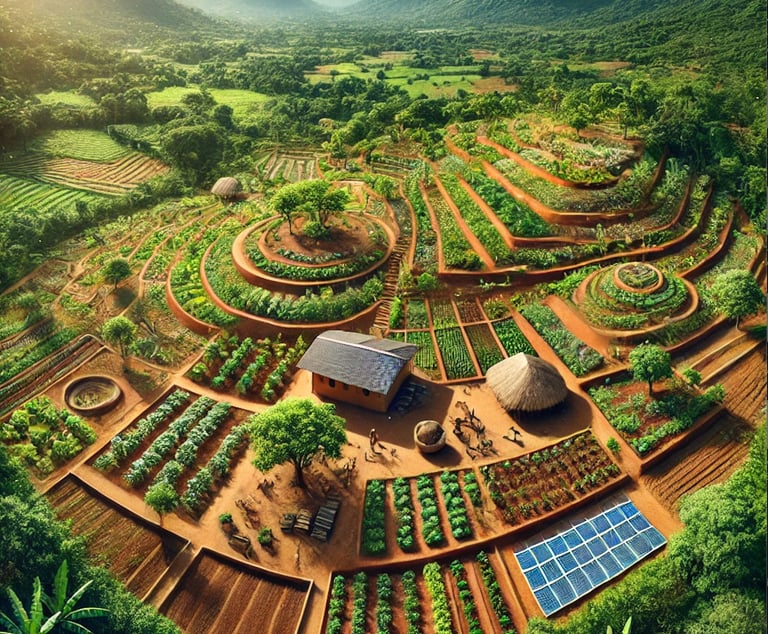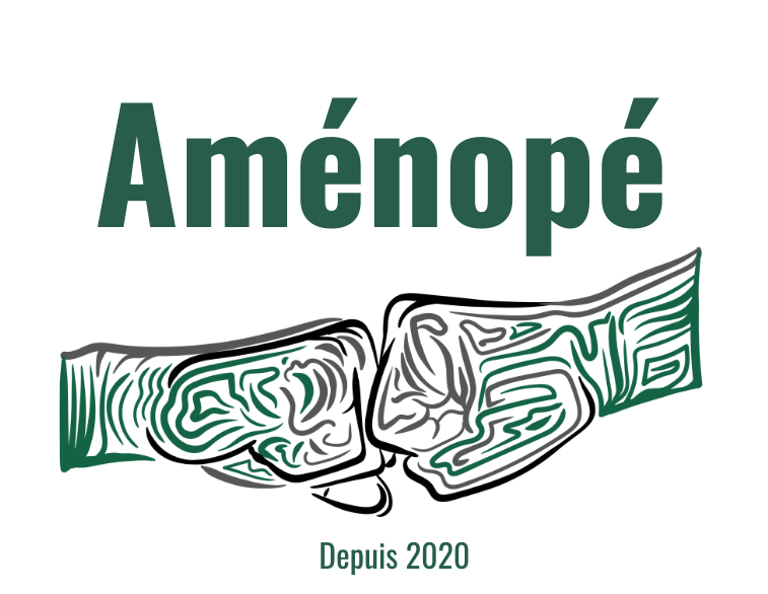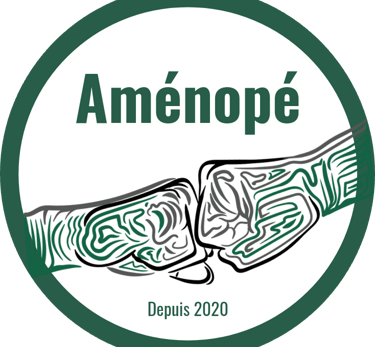OFFICIAL OPENING IN 2026
What is Permaculture design?
It is a systemic approach aimed at designing sustainable human and natural environments, inspired by the principles of nature. It is based on observation and interaction with ecosystems to create resilient, productive and balanced systems, while minimizing effort and ecological footprint.


🌱 What if Permaculture could feed an entire country?
What if land management began with healing the land and nurturing human connections? This is the premise of the Aménopé Farm in Togo, where they are rethinking how we produce, live, and coexist. A small farm with a grand vision: a country nourished healthily and sustainably, guided by permaculture.
Another agricultural model is possible
In Togo, nearly 60% of the population are farmers. Yet, the country remains dependent on food imports. Land is often degraded by intensive farming practices, young people are leaving rural areas, and biodiversity is declining. Faced with these challenges, permaculture offers a concrete, local, and above all, realistic solution.
But on what scale? A study inspired by micro-farm and forest garden models shows that it is possible to feed one person on approximately 0.1 to 0.15 hectares with a well-designed permaculture system. To feed Togo's 8.6 million inhabitants healthily, it would therefore only require:
👉 860,000 to 1,290,000 hectares,
or 15 to 23% of the country's total area (Togo is approximately 5.7 million hectares).
This is entirely feasible, especially since these systems restore fertility, capture water, store carbon, and generate genuine food self-sufficiency. And above all: they give communities the means to thrive on their own land.
To develop is to regenerate.
At Ferme Aménopé, this vision takes concrete root:
Agroforestry, forest garden, composting, eco-construction, and sustainable livestock farming.
Knowledge sharing through a Permaculture School.
Strong social integration with young people, elders, artists, and villagers.
Here, we don't pave over the land: we regenerate it. Every tree planted, every hedgerow, every heirloom seed sown is an act of sustainable development. Permaculture design becomes a living urban planning strategy, respectful of both ecosystems and cultural dynamics.
An Ethical Compass
Permaculture rests on three simple yet powerful principles:
Care for the earth.
Care for people.
Share resources equitably
At Aménopé, these principles are not slogans, but daily practices. It is a replicable model, a credible alternative to destructive food systems. It is also an invitation to rethink our relationship with the land: no longer as a space to dominate, but as a living environment to cultivate intelligently
For Togolese Food Sovereignty
Developing the land through permaculture means investing in resilience, health, local employment, biodiversity, and beauty. It means enabling Togo to become a laboratory for food sovereignty in West Africa.
What if tomorrow, this dream became a reality?
All that's missing are partners, supporters, and intermediaries. People and institutions ready to bet, like us, on life.
CONTACT US:
amenope.togo@gmail.com
Tel: +228 92 67 00 00
We welcome volunteers from around the world to guide their journeys towards autonomy through learning permaculture.
CONTACT / RESERVATIONS
FOLLOW US ON NETWORKS
amenope.togo@gmail.com
Tel : +228 92 67 00 00
Association Aménopé Togo - Récépissé n° 0568/MATDCL/SG/DLPAP/2025 - All rights reserved. © 2025.
Aménopé Togo
Ferme Aménopé Togo
Quartier SOSSI
Agou-Nyogbo Sud
Kloto, Togo
😎 You have already been to Ferme Aménopé You planted a cutting, shared a meal, followed a course or simply took a deep breath of fresh air in the heart of our forest garden
DONATE 🤍
By supporting Amenope, you become part of a global movement for land regeneration and the dignity of people. Each donation is a seed sown for a fairer, greener and more autonomous future.


